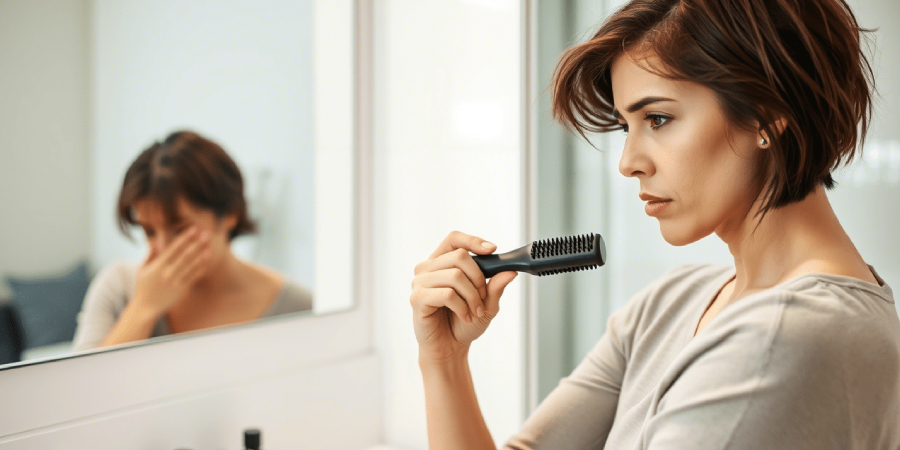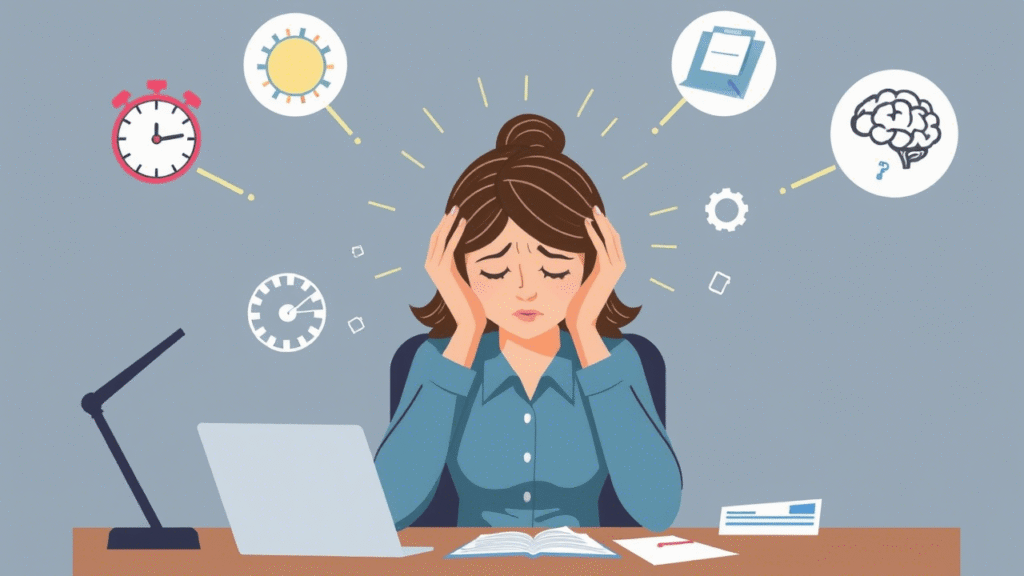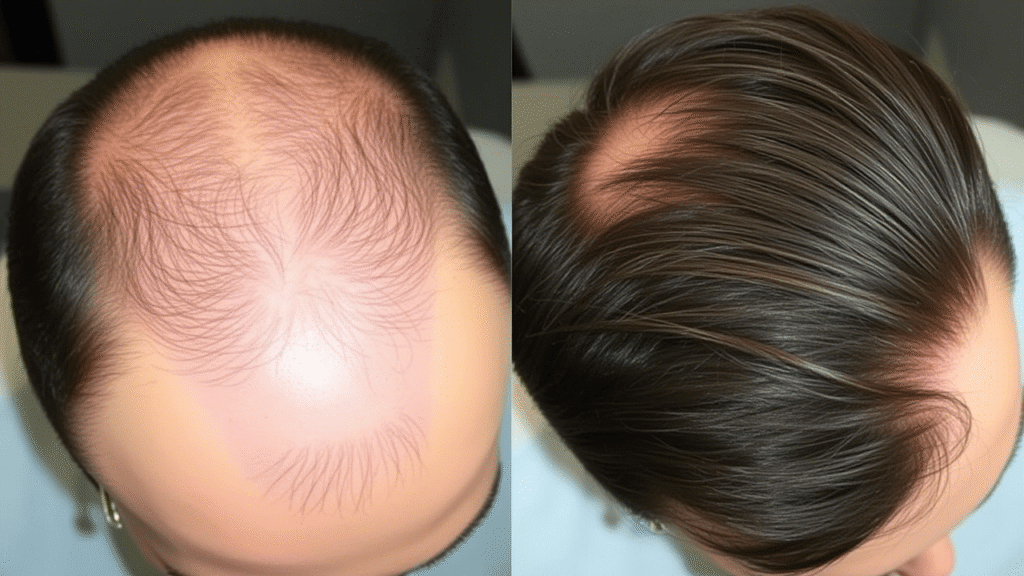
Hair Loss From Stress
- 6 Causes & 5 Fast Ways to Regrow Hair
Expert Team of
professionals
Over 1 million
Treatments delivered
Award winning
Clinics Across the UK
Rated 92%
on Trustpilot
9 Clinics
Across the UK
Many people experience sudden hair loss during intense emotional or physical stress. This hair loss, known as telogen effluvium, happens when stress disrupts the growth cycle, pushing hair into a resting phase.
Stress can cause hair to fall out, and this often occurs weeks after a particularly challenging period.
This type of hair loss is known as telogen effluvium, a condition that is usually temporary and improves as stress levels decrease. Healthy habits like exercise, sleep, and a balanced diet can help your hair grow back naturally.
In this article, we’ll explore how stress affects your hair and what you can do to encourage regrowth and restore confidence.
Hair Loss From Stress: 5 Causes
Stress affects not only mood but also hair, often causing telogen effluvium, which leads to temporary hair shedding.
- Stress affects your body in multiple ways, including its impact on hair health.
- Telogen effluvium is a common condition that causes hair loss due to stress.
- When stressed, your body prompts hair follicles to enter a resting (telogen) phase.
- After a few months, this leads to increased hair shedding.
- The condition is usually temporary, and hair typically regrows once stress is reduced.

Hair Loss From Stress: Signs
It’s essential to recognize the early signs of hair loss caused by stress. You might see more hair than usual on your pillow, in the shower, or when you brush your hair. Your hair may also look thinner overall. If you observe these changes, consider if you’ve experienced stress recently.
5 Simple Tips to Reduce Stress and Support Hair Health
Managing stress can help reduce hair loss. Here are some simple strategies:
- Adequate Sleep: Aim for 7-8 hours each night to help your body recover from stress.
- Relaxation Techniques: Meditation or deep breathing can calm your mind.
- Healthy Eating: Eating balanced meals supports overall health, including the health of your hair.
- Regular Exercise: Activities such as walking or yoga can help lower stress.
- Seek Support: Talking to friends, family, or a counselor can help you manage stress better.
When to Consult a Professional
Seeing a dermatologist is a good idea if hair loss continues or worsens. They can investigate other potential causes and recommend suitable treatments. Remember, stress-related hair loss is often temporary, and your hair can return to normal with proper care and attention. Taking steps to manage stress benefits your hair and improves your overall well-being.
Ways to Stop Stress-Related Hair Loss
The key? Reduce stress + support hair health.
6 Ways to Fix It:
Eat healthy – Protein, iron, and vitamins (Biotin, D) help hair grow.
Sleep well – Lack of sleep worsens stress and hair loss.
Try relaxation – Yoga, meditation, or deep breathing can help.
Avoid tight hairstyles – Ponytails or braids can pull out hair.
Use gentle hair care – Avoid harsh chemicals and heat styling.
See a doctor – If hair loss doesn’t stop, a dermatologist can help.
Will Hair Grow Back?

Stress affects your body in many ways. One surprising effect? Hair loss. Stress could be why you’ve noticed more hair in your brush or shower. The good news? It’s often temporary. Let’s break it down in simple terms.
Most stress-related hair loss is temporary.
- Telogen effluvium hair typically regrows within 6-12 months.
- Alopecia areata may require treatment, but it often improves on its own.
How Much Does Treatment Cost?
Conclusion
Stress-related hair loss can be scary, but stay calm. Hair usually regrows with time, rest, and healthy habits. Exercise, eat well, and relax. If shedding worsens or doesn’t stop, consult a doctor or dermatologist. Care for your mind and body. Your hair will thank you.
Frequently Asked Questions
To stop stress, practice relaxation techniques like deep breathing, exercise regularly, get enough sleep, and maintain a healthy work-life balance.
Hair loss can be caused by genetics (androgenetic alopecia) and stress. Stress-induced hair loss is usually temporary, while genetic hair loss tends to be permanent.
Yes, hair loss due to stress often grows once the stress is reduced and the body recovers.
It’s normal to lose 50-100 hairs a day. Anything more than that could be a sign of an underlying issue.
Get In Touch
With CoLaz
ARRANGE A CONSULTATION
ONE OF OUR ADVISERS WILL CALL YOU BACK SHORTLY TO ARRANGE YOUR CONSULTATION.







